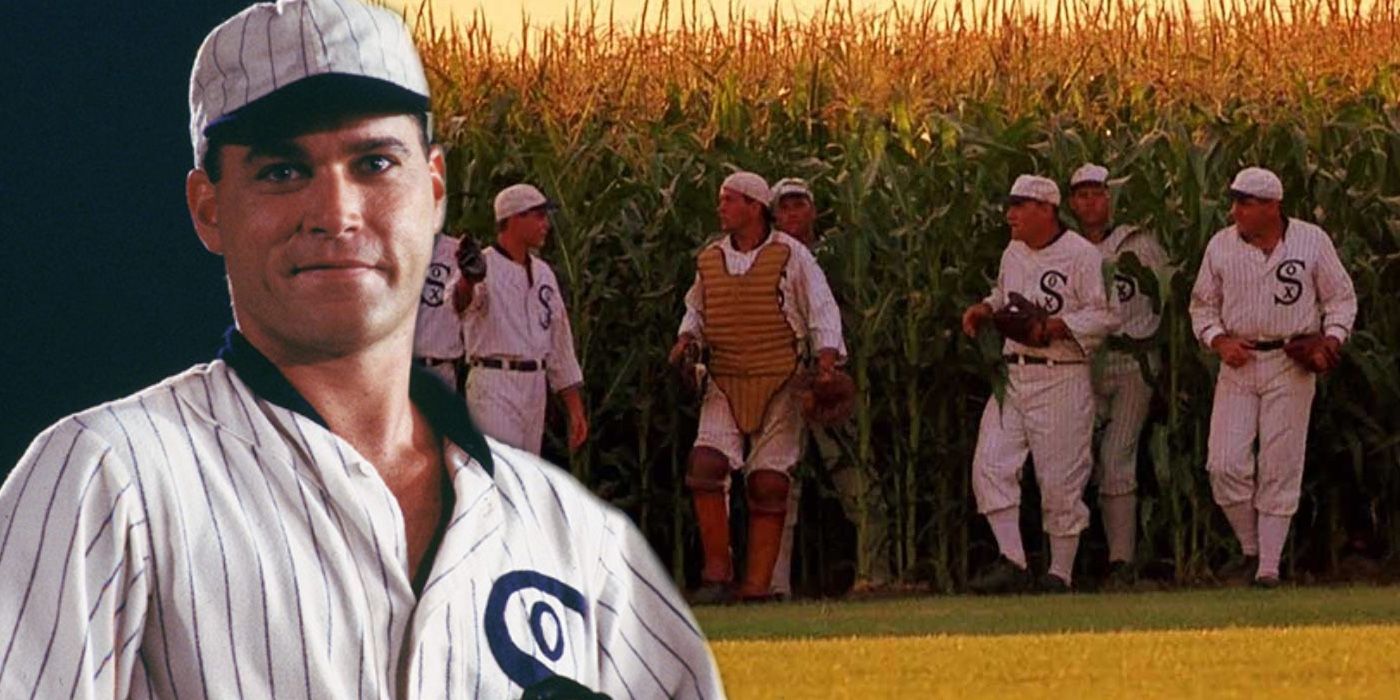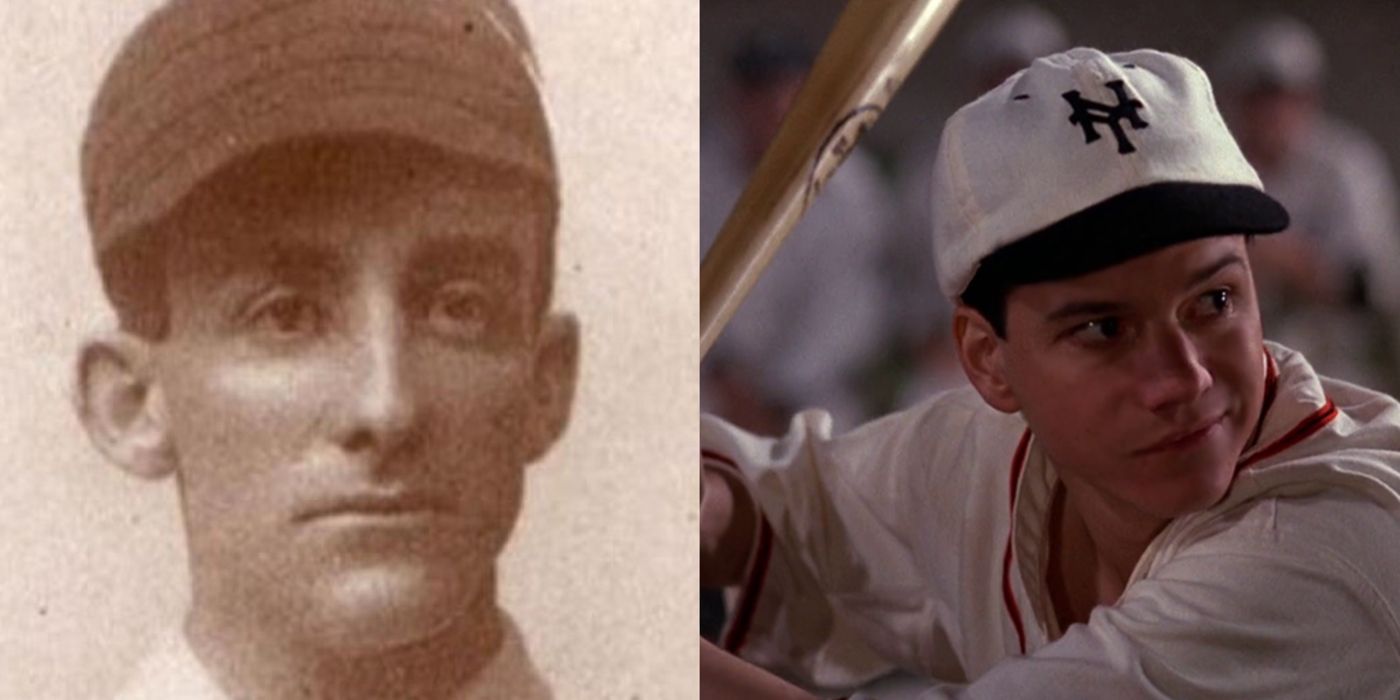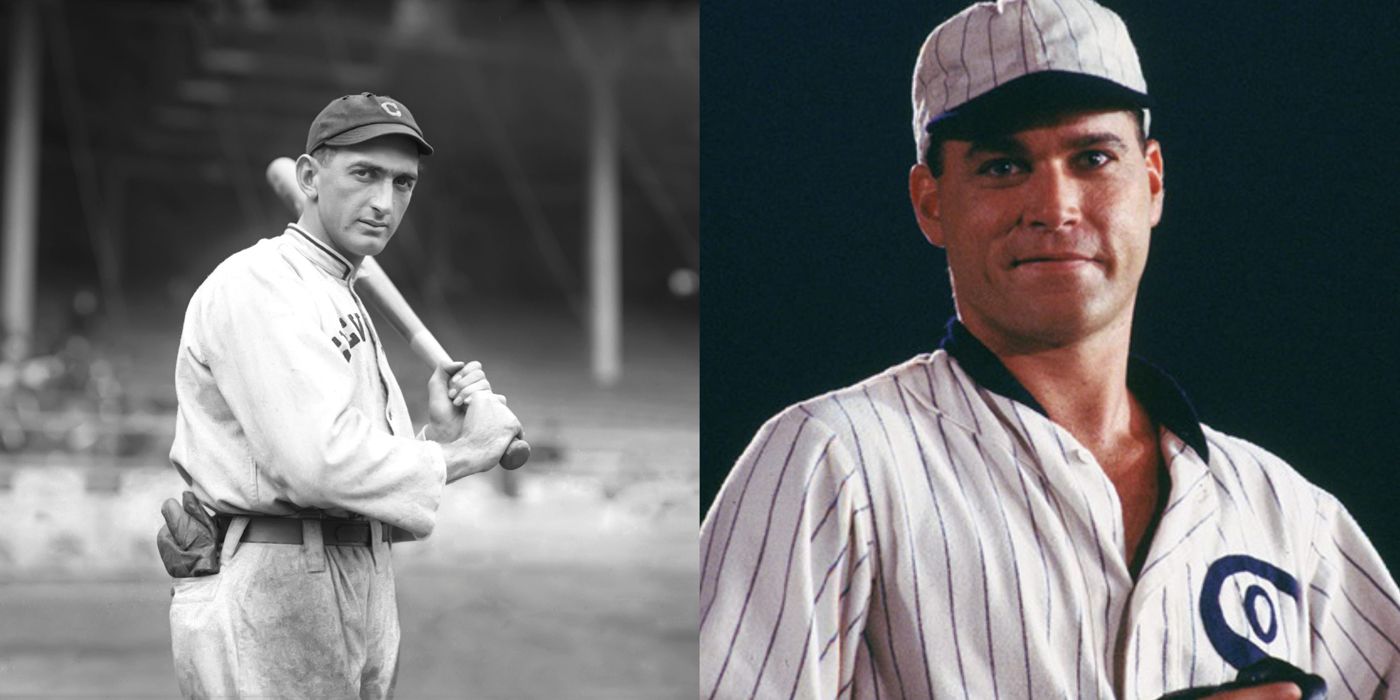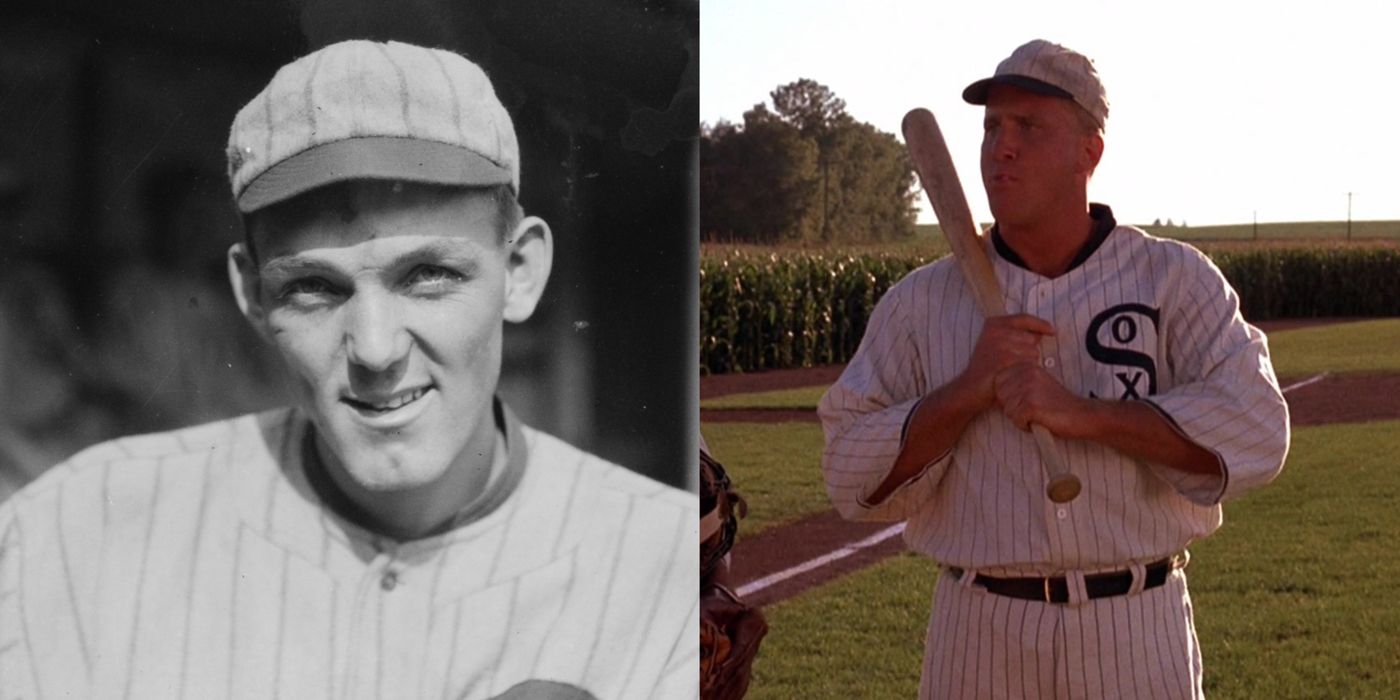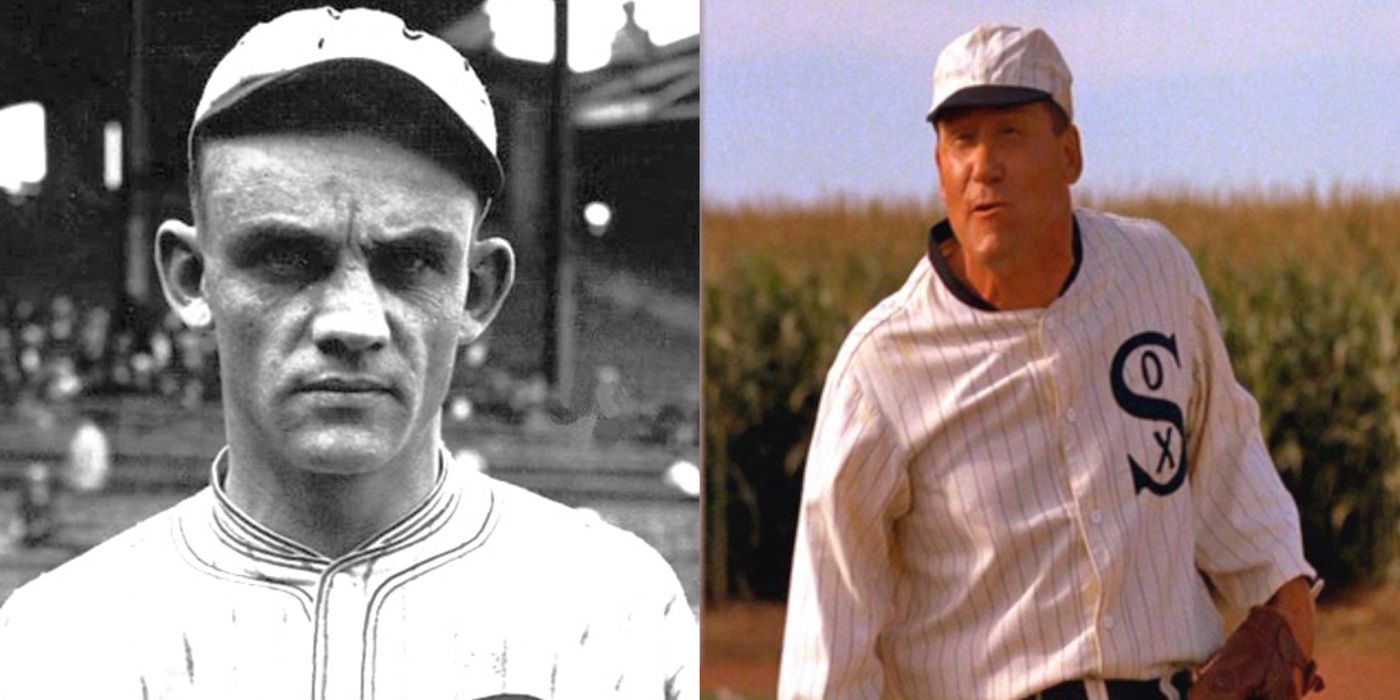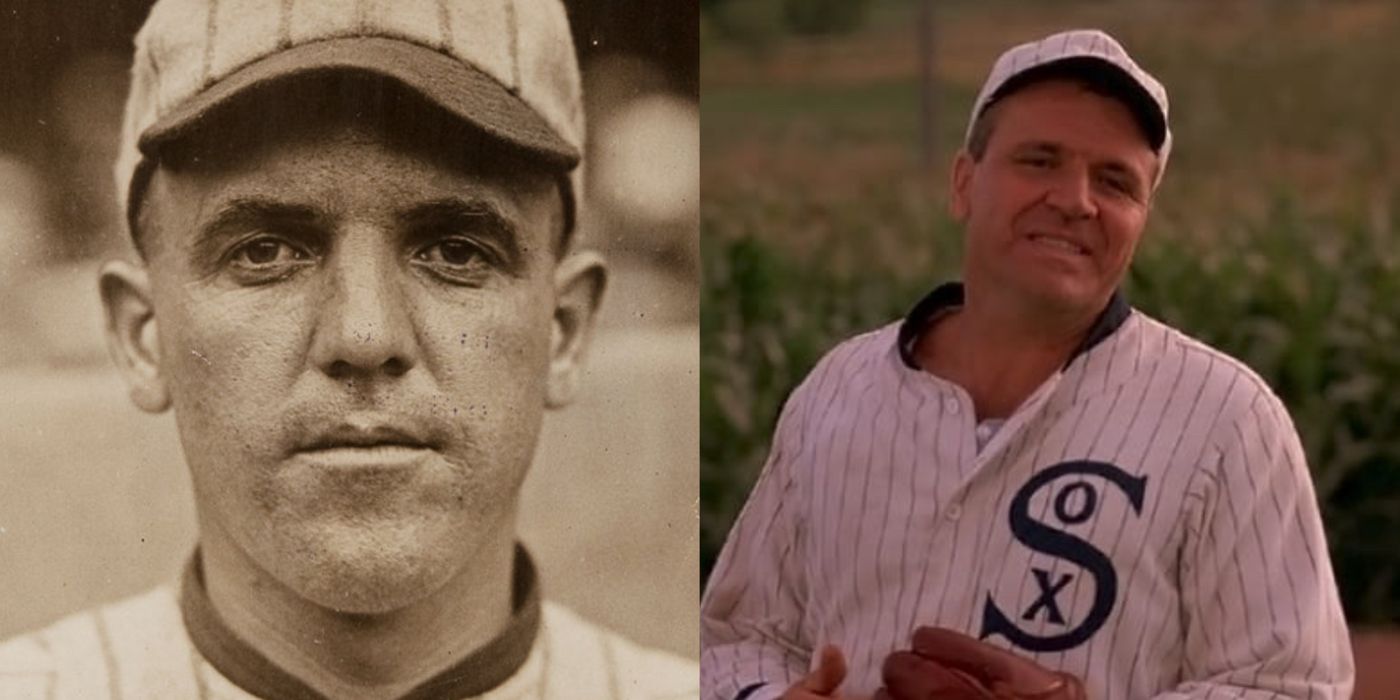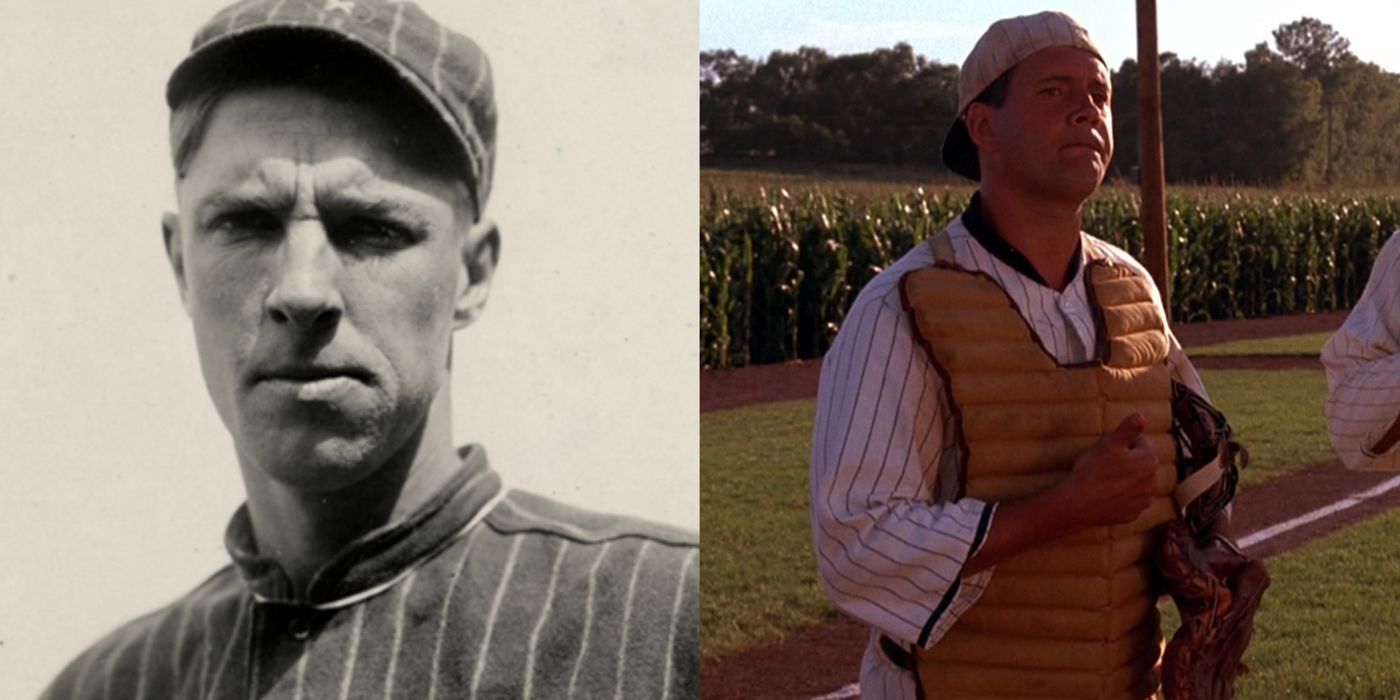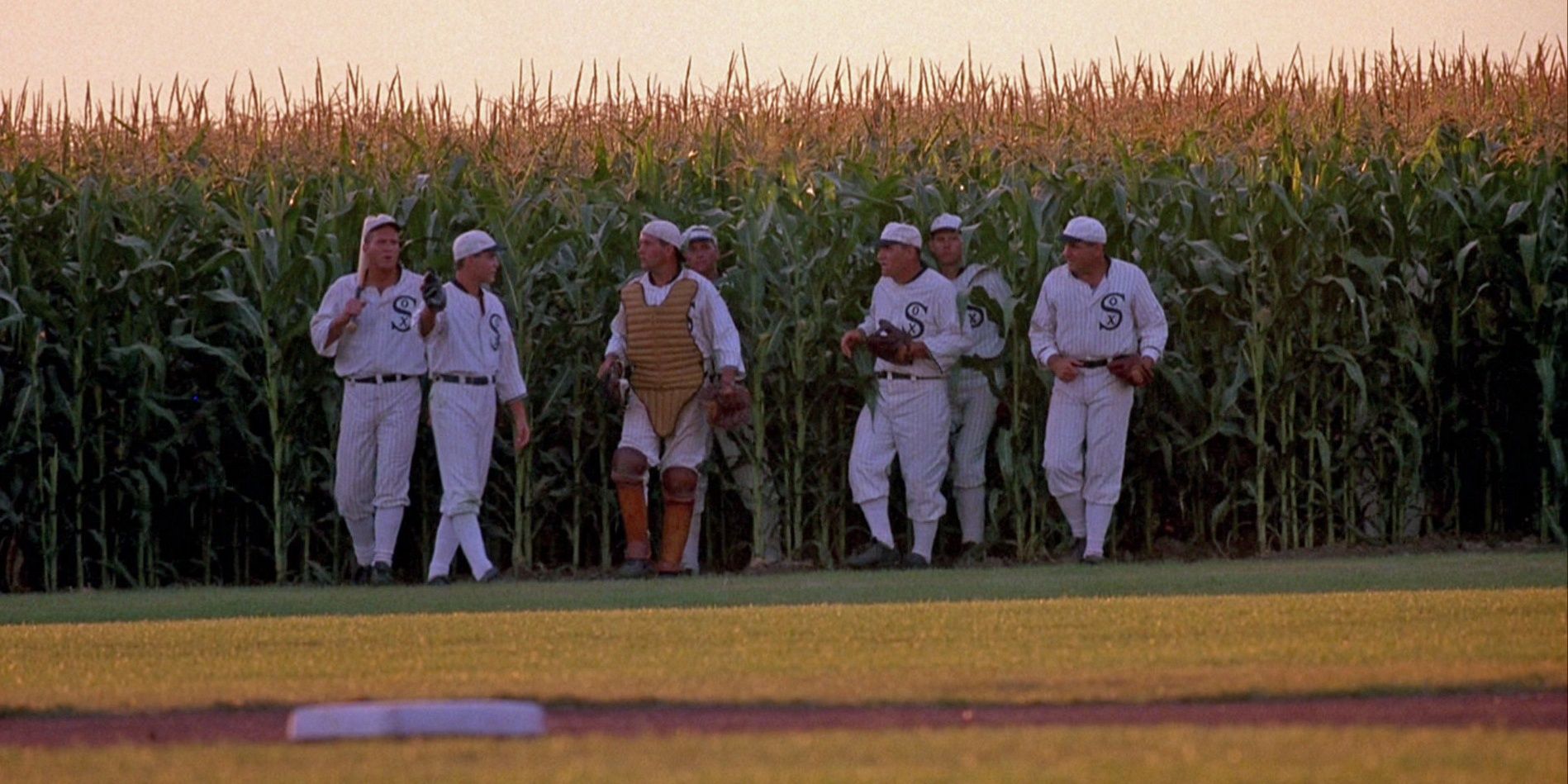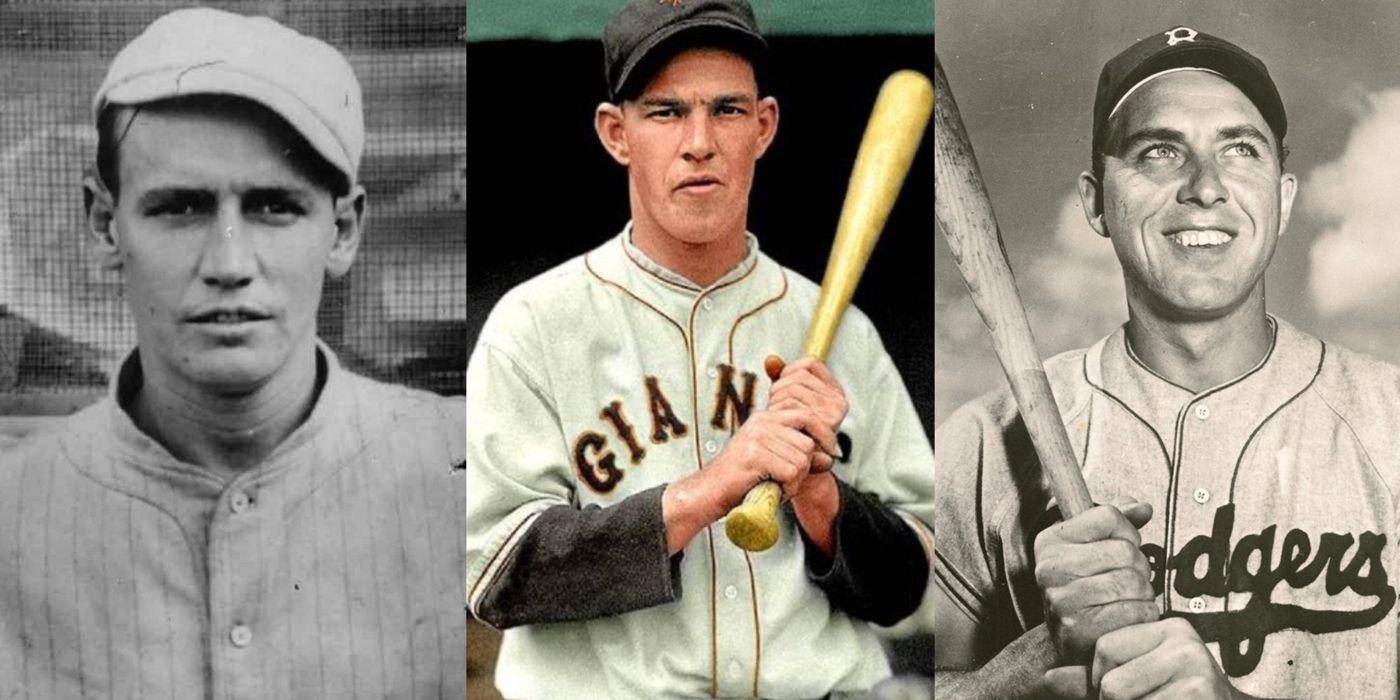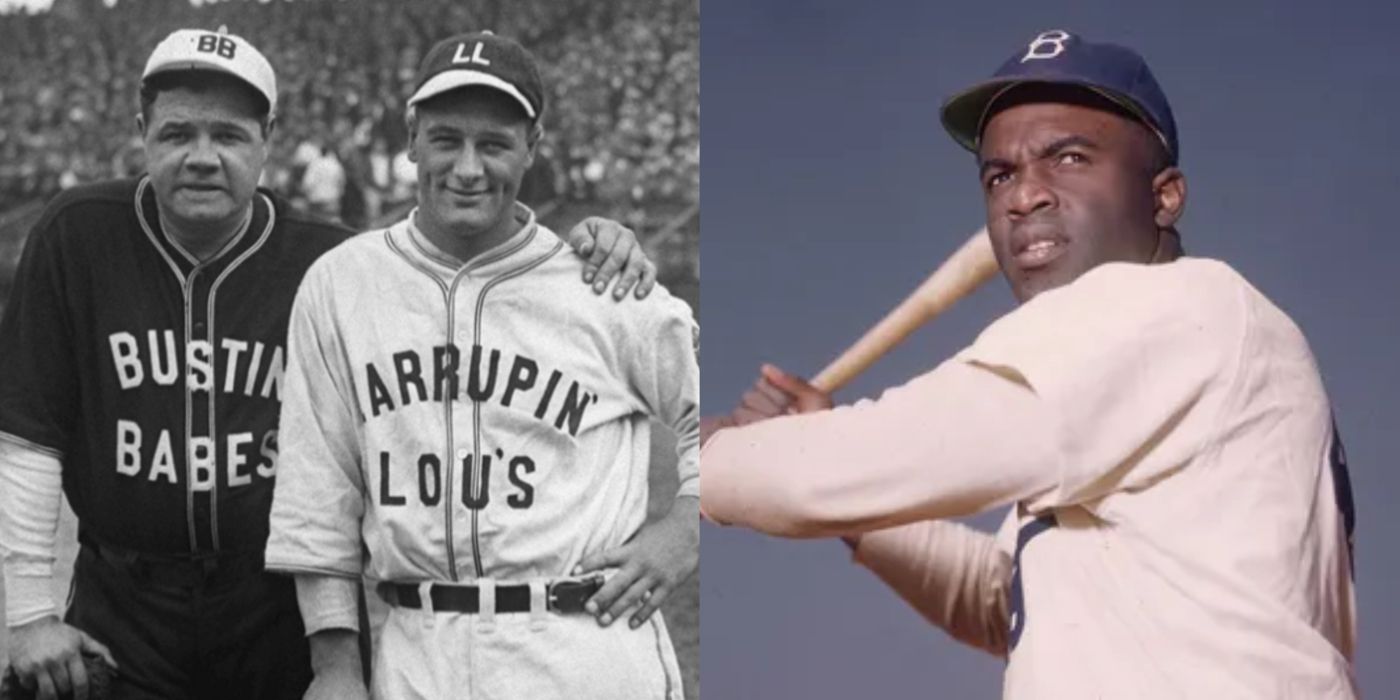Field of Dreams is a classic baseball movie, and its dramatic story depicts a lineup packed with legendary players from the pastime's rich history. Field of Dreams is a love letter to baseball, and it uses its narrative to connect the game to the struggles and regrets of its main character, Ray (Kevin Costner). Beloved by audiences whether they're sports fans or not, Field of Dreams was a critical success and was nominated for three Academy Awards, including Best Picture. Its famous catchphrase, "if you build it, they will come," has become ingrained in popular culture, ensuring its legacy as more than just a quintessential baseball movie.
Instead of dreaming up fictional players to populate Ray's baseball diamond, the movie instead opts to pull figures straight from the past and highlight figures who were long forgotten. Though the real meaning of Field of Dreams' ending is about redemption for Ray and his departed father, that theme repeats itself through many of the players featured as ghosts in the movie. Field of Dreams portrays a number of historic players, some of them famous, others who had been lost to time. The bulk of these characters played for the notorious 1919 Chicago White Sox while the rest are derived from all corners of the sport.
Archie "Moonlight" Graham
Archibald "Moonlight" Graham didn't set the world on fire as a professional baseball player. In fact, he only played one game, as a right fielder for the New York Giants in 1905. As depicted in the movie (portrayed by Frank Whaley and Burt Lancaster), the real Graham quit baseball and had a long and successful career in medicine. However, the movie does change a few details about his life. It's common for great baseball movies to play fast and loose with the facts, and Graham's real-life timeline is bumped up a few years in order to fit more cleanly into Field of Dreams' 1980s setting.
"Shoeless" Joe Jackson
The first ghost encountered by Ray in Field of Dreams, the legendary "Shoeless" Joe Jackson, was actually the namesake of the original novel by W.P. Kinsella that the movie is based on. Though Jackson was an amazing player in his own right, the speedy outfielder forever sullied his name by being part of the 1919 Chicago White Sox team, which threw the World Series for a big gambling payout. Ray Liotta's performance as Jackson isn't necessarily an accurate depiction of the soft-spoken Southerner, but he makes for a compelling character because of his troubled legacy.
Buck Weaver
Buck Weaver, the third baseman for the 1919 White Sox, had previously been played by John Cusack in one of his best movies — 1988's Eight Men Out — and his complicated history is just as compelling in Field of Dreams, where he's portrayed by Michael Milhoan. The shortstop-turned-third-baseman won a World Series title with the White Sox in 1917, but the Black Sox scandal of 1919 saw him banned from baseball for life. Sadly, Weaver attempted to be reinstated several times, but his pleas for clemency were rejected.
Chick Gandil
Chick Gandil, played by Art LaFleur in Field of Dreams, was the 1919 White Sox's mean-mugged first baseman, who had a reputation as a tough customer both on and off the field. Gandil was intricately involved with the fix of the 1919 World Series and spoke candidly about his involvement after the fact. Gandil had a decent career in the majors that lasted almost a decade before he was banned for his involvement in the scandal. He was also featured in the similarly acclaimed baseball movie Eight Men Out.
Eddie Cicotte
Eddie Cicotte (Steve Eastin in Field of Dreams) pitched over 300 games in the majors and earned a respectable win/loss record in the process, but his disqualification from the White Sox betting scandal overshadowed his accomplishments. Cicotte was one of the last conspirators to join in on the fix, and he was nevertheless banned for life by the no-nonsense baseball commissioner, Kenesaw Mountain Landis. Despite his impropriety, Cicotte twice led the American League in wins as a pitcher and was a World Series champion with the White Sox in 1917.
Swede Risberg
Though Swede Risberg is depicted as a catcher in Field of Dreams (played by Charles Hoyes), he was actually known as a utility infielder who played mostly shortstop in his time in the majors. But while Field of Dreams gets things wrong about baseball, the facts are not as important as the narrative, and Risberg's erroneous placement on the team does little to diminish the entertainment value of the movie. Risberg had a relatively short stint in the majors that started in 1917 with the White Sox. He would later be banned from baseball due to his connection with the fix scandal.
Other Potential Black Sox Players
Considering Field of Dreams focused on the notorious 1919 White Sox team, several unnamed ghost players on the field with "Shoeless" Joe can be assumed to be the other three men who were banned. In total, eight players were kicked out of Major League Baseball because of the scandal, leaving Happy Felsch, Lefty Williams, and Fred McMullin unaccounted for. All three men had unremarkable careers in baseball, and though they all won the World Series with Chicago in 1917, the Black Sox Scandal is the thing they're most known for.
The Players Spotted By Archie Graham
Sports movies nominated for Best Picture are rare, and one thing that sets Field of Dreams apart is that it transcends the sport aspect and represents the love of the game as well. This comes through in the scene where Archie Graham sees the field full of ghostly all-stars and calls out a few notable names who otherwise aren't focused on in the movie, let alone its baseball action. The first is "Smoky" Joe Wood, an outfielder who won three world series with the Boston Red Sox and the Cleveland Indians across the 1910s and 1920s. Wood was a contemporary of the Black Sox but wasn't involved with the scandal.
Graham also identified outfielder Mel Ott, who played in the generation after the Black Sox and was actually only a child during the scandal. Field of Dreams is a perfect movie to watch after any World Series because of all its World Series champions on display. In 1933, Ott won a World Series with the New York Giants, the team he played on his whole career. Finally, Graham noticed the beloved first baseman Gil Hodges, whose 20-year career saw him play for the Brooklyn/L.A. Dodgers and the New York Mets. Hodges was born almost a decade after the Black Sox scandal and played from the '40s through the '60s.
Players Who Should Have Made The Team
Outside the players who were specifically mentioned, there were also many figures in recognizable baseball uniforms who went unnamed. Speculation could run wild as to exactly who those players were, but the inclusion of legendary New York Yankees like Babe Ruth and Lou Gehrig could be assumed when seeing two men in period-appropriate Yankee garb. Those men had been featured in great athlete biopics of their own, and there certainly was no shortage of media that focused on the Yankee icons.
The movie's director, Phil Alden Robinson, expressed certain regrets about making Field of Dreams and the players he wished he had included. In an interview with '80s Movie Guide, the filmmaker specifically named Jackie Robinson as one baseball icon who deserved to be in the movie. Unfortunately, in the time of most of the players shown as ghosts in Field of Dreams, baseball was still a heavily segregated sport. Nevertheless, the exclusion of any notable Black players is a definite misstep for a movie so steeped in baseball lore.

